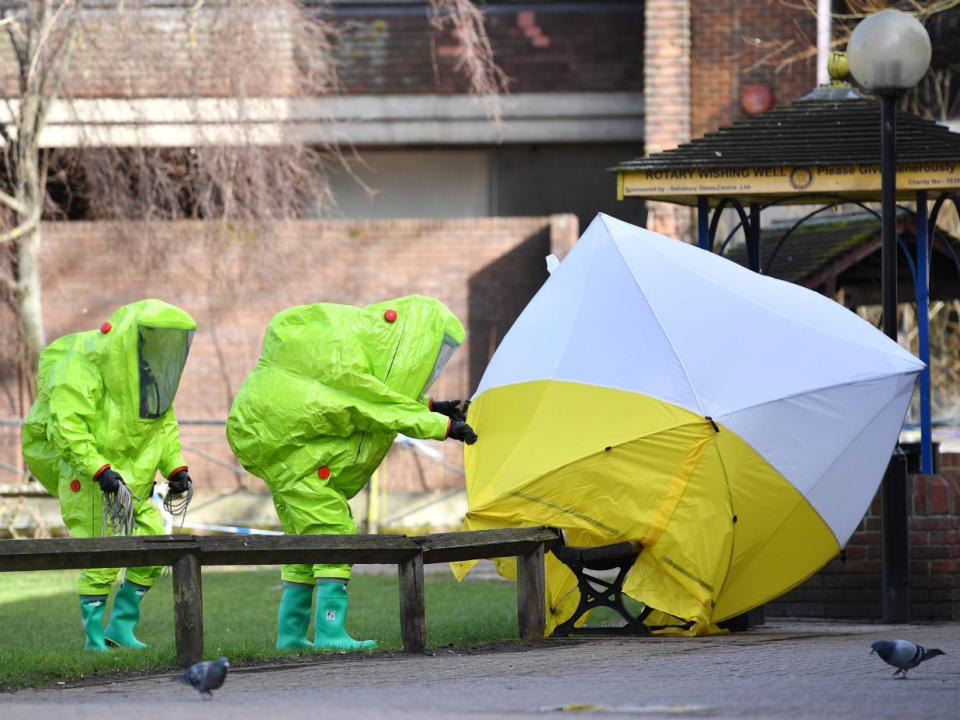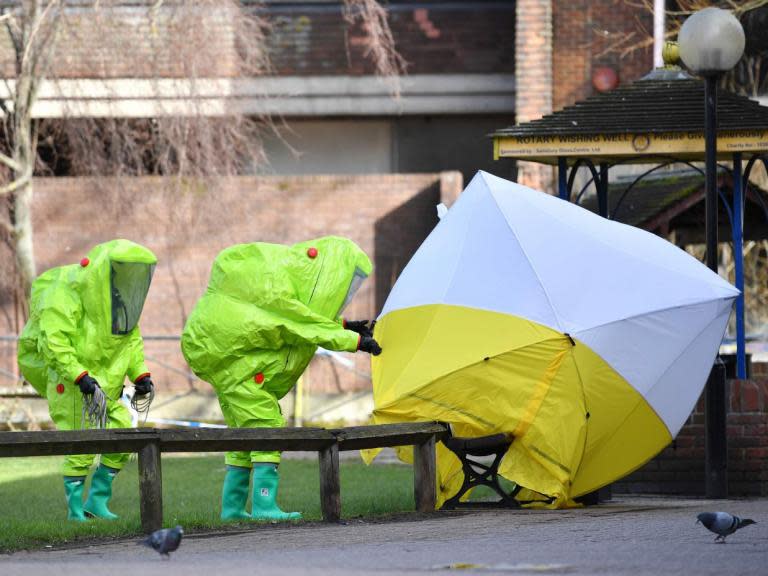Theresa May will not impose any immediate further sanctions on Russia over Salisbury spy poisoning
No immediate further reprisals will be taken against Russia over the poisoning of former double agent Sergei Skripal, Downing Street says.
Ministers and security officials are “actively considering” other measures and “stand ready to deploy at any time”, after a meeting of the National Security Council (NSC).
But Theresa May has stepped back from any further retaliation at present and is not expected to make any statement about Russia to MPs this week.
The Government is instead determined to drive home the first round of sanctions announced last week, to target the assets of Russians in the UK who threaten “life or property”.
The focus will also switch to building further international support for a united stance against Vladimir Putin, starting in Brussels talks with EU leaders on Thursday.
Asked if there would be no further reprisals for now, the Prime Minister’s spokesman said: “We are in the process of enacting measures which the Prime Minister announced last week.
“We continue to consider other steps. As and when those are brought forward, the Prime Minister has given a commitment to update the House.”
There had been speculation that the NSC meeting would trigger further measures, after Russia’s weekend response went further than a simple tit-for-tat expulsion of diplomats.
Moscow also announced the closure of the British Council, which promotes British culture and the English language, in Russia – and shelved plans to reopen the British consulate in St Petersburg.
But the NSC meeting focused on progress made in enforcing the first sanctions, including to “dismantle the Russian espionage network in the UK”.
The 23 Russian “undeclared intelligence officers” – as the Prime Minister described them – left the country’s London consulate on Tuesday, six days after she gave them a week to pack their bags and leave the UK.
Children, suitcases, bags and pet baskets were loaded into three cars, five people carriers and three small-sized coaches which left the west London complex shortly after 10am.
The NSC was also told that the promised “strict checks by border officials on private flights” were under way, to track down people suspected of threatening the UK’s security.
So-called Magnitsky legislation – named after the lawyer killed in a Russian jail – is being prepared to target the assets of foreign nationals linked to human rights abuses.
“The Prime Minister reiterated that we will freeze Russian state assets wherever we have the evidence that they may be used to threaten the life or property of UK nationals or residents,” the spokesman added.
“And – led by the National Crime Agency – we will continue to bring all the capabilities of UK law enforcement to bear against serious criminals and corrupt elites.
“The Prime Minister said that there are other measures the Government and security officials are actively considering and stand ready to deploy at any time.”
The spokesman declined to comment on the decision of the president of the European Commission, Jean-Claude Juncker, to write to Mr Putin to congratulate him on his re-election as president.

 Yahoo News
Yahoo News 

